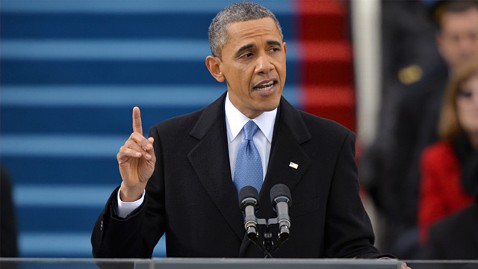RICHMOND — The secret plan began unfolding about two weeks ago. Senate Majority Leader Thomas K. Norment Jr. came to Lt. Gov. Bill Bolling with a way to redraw Senate districts and make them more favorable to Republicans.
But Bolling rejected the idea, fearing that it would set a bad precedent, according to two people familiar with the meeting but not authorized to discuss it publicly. Bolling, who would be needed to break a tie vote in the evenly divided Senate, also thought the move would so inflame partisan passions that lawmakers would lose sight of such priorities as transportation and education.
Republicans would have to wait for the right opportunity.
It presented itself on Inauguration Day, when Virginia Democrats basked in their second straight presidential win and one in particular traveled to Washington to witness President Obama’s swearing-in: Sen. Henry L. Marsh III (D-Richmond).
With the civil rights lawyer, who decades ago argued school desegregation cases and served as Richmond’s first black mayor, away in the District on Monday, Republicans saw their chance. They took up a bill that had been on the calendar for days, only to get passed by every time, and gave it the legislative equivalent of an extreme makeover.
Left over from last year, the original bill called for “technical adjustments” to House district boundaries. On Monday, without hearings or notice, Republicans amended it on the floor so that it also called for sweeping changes to state Senate districts. The debate on the 36-page amendment was limited to 30 minutes.
The bill, approved 20 to 19, concentrates minority voters in a new Southside district and changes most district lines. Democrats said the new map would make eight districts, six of them held by Democrats, more heavily Republican. The map, which now goes before the Republican-controlled House, also puts senators R. Creigh Deeds (D-Bath) and Emmett W. Hanger Jr. (R-Augusta) into one district. It also adds more Democrats to three already deeply blue districts.
Gov. Robert F. McDonnell (R) was among those surprised by the new political map. He said he was concerned that his own party’s redistricting attempt will kill any bipartisan spirit and torpedo his ambitious agenda in his final year as governor.
McDonnell declined to say whether he would sign the legislation. He added that he was only informed of the Republicans’ plan shortly before the bill hit the floor Monday and watched it unfold on TV from his office in the Capitol.
“I certainly don’t think that’s a good way to do business,” said McDonnell, adding, “This was not an initiative that I advocated.”
Sen. John C. Watkins (R-Powhatan) said the changes would give Virginia a sixth majority-black district and protect the commonwealth from possible litigation under the Voting Rights Act. He also said the map would improve on the lines that Democrats had drawn to benefit their party when they controlled Richmond’s upper chamber.
“As those who were here then will recall, the 2011 redistricting process was not this body’s finest hour,” Watkins said. “The map that was produced was lambasted for dividing too many localities, splitting too many precincts, having high deviations between districts, violating basic standards of compactness and discounting communities of interest.”











